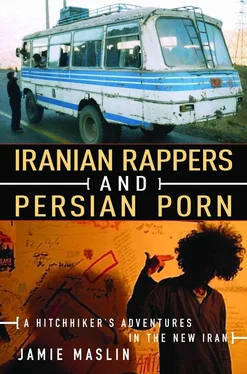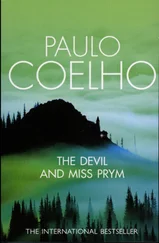Gesturing to the game, I asked the guy who spoke a little English if he played volleyball. Shaking his head, he replied, “Football and box,” followed by a brief shadowboxing demonstration.
Having done a bit of this myself, I did likewise with a quick flurry of the noble art. They all liked this so he did his again. I again followed suit. We were buddies now, and to show it he produced a flick knife and began meticulously slicing up an apple and banana for us to share. They were delicious. I stayed around trying to communicate with them long after it got dark, and when it was finally time to leave, they insisted on driving me back to my hotel.
Before going inside to bed, I headed up the street for a stroll; I was struck by the clarity of the stars, which blazed in the clear night sky with an intensity I’d not yet seen on this trip, and I stood for several minutes just looking up. They were spectacular and although I was delighted to be here, I couldn’t help but wish I had someone to share this magical sight with.
When I got back to the hotel, the fatigue of the last couple of nights caught up with me and I crashed out exhausted but happy.
* * *
Iranian taxi drivers can be a pain in the ass. I’d spent the last twenty minutes in animated negotiation with a group of hard-nosed cabbies in an attempt to get a ride to my intended destination of today, the church of St. Thaddeus, but things hadn’t gone according to plan.
I had made my way out to a little junction just outside of Maku where a group of taxis was parked haphazardly along the road I needed to take to get to the church. Despite my best efforts, none of the crafty cabbies, of which there were about fifteen, was willing to take me unless I paid way over the standard price and stumped up an outrageously big tourist fee instead. They didn’t say this, of course, but since the prices they were quoting were seven times higher than those in my guidebook, it didn’t take a genius to work it out.
Taxis in Iran work in a slightly different way from those in the West, in that they can be hired in two ways, either in the conventional manner, or as a so-called shared taxi. This is where the taxi picks up multiple passengers along a standard route in much the same way as a bus does in the West. Both are interchangeable, though, with the driver going for the best option as it presents itself.
My plan had been to catch a shared cab to the church, as the costs for this were much lower, but the cabbies vetoed this option despite there being other people heading along the same route. They insisted that they would only take me privately, and only to the town nearest the church, Kandi Kelisa, but not to the church itself. And for this they wanted a ridiculous amount of money, IR200,000, which at about twenty dollars was having a laugh to say the least.
The fact that they were all together made them impossible to negotiate with, as a sort of group mentality developed that made none of them want to haggle, or more accurately back down in front of their buddies, and especially not to a tourist. A gangly traffic cop from across the street who had been watching all the commotion and lively negotiations loped over to lend his authority to the drivers’ argument. He insisted, in broken English, that their price was an absolute bargain just for me, and that I was a very lucky tourist indeed to have encountered such generous drivers. Yeah right. I shook my head with a laugh. He demanded my passport.
Whoops. I explained as best I could that it was at my hotel in the safe. He didn’t seem to mind and thankfully went back to his traffic duties, which seemed to entail standing in the road staring at my frustrated efforts to secure a ride and not much else.
Things took an ominous twist now as I was waved over by three military guys and a man in a dark suit and shades, who were standing across the main road next to a little office.
“Oh shit,” I thought.
They asked for my passport and once again, I had to explain where it was. The guy in the suit and shades seemed to be the main man and had the distinct air of a secret policeman of some sort. I soon got them all on my side when I produced my Iranian guidebook, which totally fascinated them. Their officious attitudes melted as they flicked through the glossy color photos, smiling and pointing out places to each other. The guy in the suit now explained, in good English, what I already knew: that the cabbies were trying to rip me off because I was a tourist, and that my best bet was to go back to Maku proper where they didn’t have a monopoly, and to get a taxi there.
As I left to go back to Maku, the cabbies waved goodbye sarcastically and had a good-natured giggle at me. That was it; the gauntlet had been thrown.
Once back in Maku, I found it easy to get a driver to agree to take me on a return trip to the church. His price was slightly more than I wanted to pay at IR40,000, but it would be more than worth it to drive past the cabbies at the junction and see their faces drop. I planned not only to wave out of the window but to hold up three fingers, like I had done when trying to negotiate with them, as if to say I had only paid 30,000. It was a bit of a white lie, but I didn’t care and couldn’t wait to see them all again.
My hopes for revenge were dashed when my driver headed along a different route to get to the church, which went nowhere near their junction. It was a much longer drive than I thought it would be, through a near-deserted, barren, rocky landscape whose stark emptiness was broken only by the occasional wandering goat herder or hovering hawk in the sky, of which I spotted a surprising number. The sky was an intense blue and virtually cloudless, save for a few fluffy cotton wool-like forms drifting low toward the horizon. I didn’t see any other cars the whole way there and was amazed at how sparse the area was. It would have been a great place to have had my own car and explore at length.
St. Thaddeus came into view long before we arrived. Although prominent, the church blended in beautifully with the sand-colored rolling hills, as much of the church was composed of a similar shade of rock. Surrounded by a large, fortresslike stone wall, the church was an impressive sight, graced with two large twelve-sided domed towers, one of which also had twelve arched windows. The other tower had four windows and was constructed with alternating black and sand-colored stone. At its western end, the church was constructed with sand-colored rock, and at its far eastern end with black stone. This reflected the other name for the church, “Qareh Kelisa,” which translates from Azeri as “black church,” although the vast majority of it was anything but black. Its isolated location and the fact it was in Iran, where I had not expected to be looking at early Christian churches, made it all the more interesting.
Contrary to popular belief, Iran has a significant Christian community totaling somewhere in the region of 300,000 worshipers. The religion has a long history in Iran with some of the earliest saints spreading the gospels there. Most Iranian Christians are Armenian, but many other Christian communities exist in the country, including Catholics, Protestants, Adventists, and Nestorians. As a result, you can find churches in nearly all large Iranian towns. For the most part, Iran’s Christian community enjoys religious freedom, even to the extent that the country’s outright ban on alcohol consumption is annulled for churches, which are allowed to import communion wine. These freedoms do not extend, however, to Muslims who convert to Christianity. In these circumstances, you run the risk of being executed; under Iranian law, this can be punished with the death penalty.
The cab driver and I approached a little booth stationed by the main entrance. There was no one about so we walked straight into the courtyard in search of someone. The janitor was located in a small building off the main church and welcomed us in warmly. For a very small fee, I was given a little leaflet and entrance to the church itself, which the janitor unlocked for me. The taxi driver was allowed in for free, although for now he remained outside.
Читать дальше












